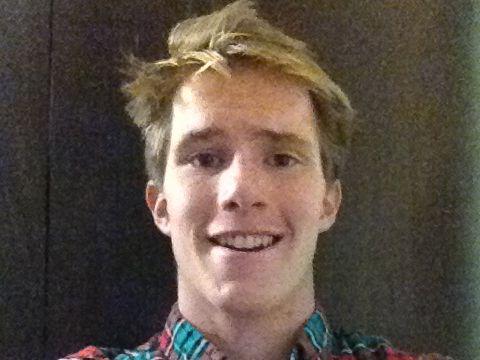Mice. Spiders. Public speaking. The dark. If one were to ask a random civilian in the United States about his or her “biggest fear,” odds are that the first few words of this column would be among some of the responses. Oftentimes, responses will be that people are afraid of things much smaller than them or that they are afraid of abstract or even non-existent things. Fantasy can play a lot into people’s fears, and sometimes, the most distant and dystopian can bring us the most terror. I challenge anyone to watch “Jaws” for the first time and not think twice about going into open water with an orange flotation device.
But fear that grips a nation and characterizes an entire era has another sort of nature. Fear of nuclear destruction at the hands of communism gave us more than 50 years of the Cold War, with all its crises and human tragedies. Fear on such a public scale is often spurred by a cataclysmic event or an act of horrific scale and immense implications. That fear arrives and almost always seizes upon the most human of emotions: mortality. Fearing and contemplating mortality, or at least fearing for the destruction of your own way of living as you know it, is unlikely to be someone’s self-proclaimed “worst fear.” But fearing one’s own death is perhaps the only fear we can share as humans. And when events such as 9/11 occur, the fragility of life, and our sense of vulnerability, becomes crushingly apparent.
But having a source of fear usually means that the source can be eradicated. However abstract, however aloof or amorphous the cause of our fears may be, we seem to find ways to eradicate them. Afraid of the dark? Turn on the light. Afraid of terrorist attacks? Go after the terrorists. Afraid of nuclear destruction? Build a bomb.
But what about fearing the destruction of your planet as you know it? And knowing that it is human action and inaction in the face of drastic change that might cause it? How do we cope with such fear? And who can we go to when that fear becomes unbearable?
Hurricane Katrina, Hurricane Irene, the ongoing California drought. These are all individual examples of cataclysmic events with immense implications and a horrific scale. When one puts these events under the umbrella of “climate change,” the scale of it all becomes almost unfathomable. The Intergovernmental Panel on Climate Change, a United Nations-backed committee of scientists and experts, concluded Saturday that human action coupled with resistance to lowering emissions of fossil fuels has now expedited climate change to the point where, according to researchers, temperatures may increase to “almost 5 [degrees Celsius] above pre-industrial levels by the end of this century,” according to their Climate Change 2014 Synthesis report. Yet, we don’t seem scared enough.
The IPCC Synthesis report also concluded that in order to slow climate change, renewable energies would have to comprise 80 percent of the power sector by 2050. Perhaps most striking of all is the report’s conclusion that the usage of fossil fuels would need to be “phased out by 2100.”
Responses have been striking and uncharacteristically blunt. In a press release issued shortly after the study was published, U.S. Secretary of State John Kerry labeled the report as a “canary in a coal mine,” saying, “those who choose to ignore or dispute the science so clearly laid out in this report do so at great risk for all of us and for our kids and grandkids.” Even from an American Democratic official who has no electoral race or real popularity to preserve, Kerry’s remarks are striking.
With a surging oil boom and an improving national economy, the American political stage seems hardly ripe for discussions concerning the limitation, not to mention the eradication, of burning fossil fuels. The ongoing election season and the tactics utilized by American politicians have been criticized by many American liberals as the “politics of fear.”
But perhaps what should scare us the most is not being talked about at all. Perhaps it’s too big of a fear to fathom, too distant and abstract an idea to truly comprehend. Or maybe it’s because fear of losing one’s job trumps the fear of pushing the planet toward catastrophe, at least in the short run. With no scapegoat to go after other than ourselves, maybe it’s the lack of being able to attack the fear at its source. But whatever justifies our collective lack of fear regarding climate change, it can’t last. Now is a time that could be used to face our fears. But it seems as though with something this big, we can’t be afraid enough.
























































































































